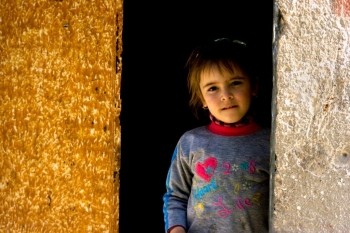 BEIRUT: Now in its tenth year and still no closer to achieving its goal, the Palestinian Right of Return Coalition vowed Monday to continue its fight for the right to return to Palestine, and not just for third-country resettlement.
BEIRUT: Now in its tenth year and still no closer to achieving its goal, the Palestinian Right of Return Coalition vowed Monday to continue its fight for the right to return to Palestine, and not just for third-country resettlement.
“Solidarity with the Palestinian refugee problem is a major requirement in solving the Palestinian cause,” said A’idoun co-founder Jaber Sleiman in his address at Beirut’s Unesco Palace.
Information Minister Tarek Mitri, also speaking at Monday’s event, called on the Lebanese to fully support the Palestinians’ right of return and not to predominantly focus on the issue of tawteen, or naturalization.
The granting of political rights to the 300,000 estimated Palestinian refugees in Lebanon is seen as a highly controversial issue, with opponents fearing that it would overwhelm the fragile sectarian system.
Although few are brave enough to disavow the right to return publically, many realize the final peace deal with Israel is unlikely to allow the return of 6 or 7 million recognized Palestinian refugees.
The reported US guarantees to Israel, which could see the United States or European nations take in a larger number of Palestinian refugees in exchange for the reinstatement of a settlement freeze were labeled overwhelmingly unhelpful by Sleiman, who called on fellow Arab states must do more to help secure a full right to return for Palestinians.
The latest round of peace talks between Israel and Palestinian President Mahmoud Abbas stalled a mere three weeks after re-launching in early September after Prime Minister Benjamin Netanyahu’s rejected calls to extend a 10-month settlement construction freeze in the West Bank.
Washington has since additionally hinted it would help mitigate the refugee problem by increasing funding to host countries grappling with the humanitarian consequences of large refugee population, but any deal which falls short of outright return has so far been overwhelmingly rejected by activists and Lebanese authorities alike.
The tragic reality remains, however, that many refugee who fled their homes, either in 1948 or 1967 no longer have homes to return to.
“They lived peacefully for centuries but [now] life has been extinguished in 675 ethnically cleansed villages,” said Salman Abu-Sitta, president of the Palestine Land Society.
The society has recently released a widely acclaimed report and book, “Mapping Palestine for its survival or its destruction,” which has clearly documented the on-the-ground situation across Israel and the Occupied Territories.
The main report findings – presented previously before a gathering of British MPs but only publicly disclosed for the first time in the Middle East at Monday’s event – show a systematic targeting of Palestinian heritage and infrastructure which has over many decades been slowly replaced by Israeli construction.
By Simona Sikimic
Daily Star





